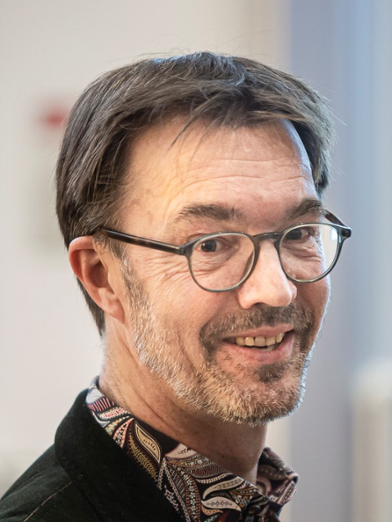-
 Albert Einstein (CC0)
Albert Einstein (CC0)
Natural scientists are sometimes sceptical about how useful philosophy is in their field. Unjustifiably, says Henk de Regt. The subject teaches scientists and students to reflect on their assumptions critically. Last Friday, the professor of Philosophy of the Natural Sciences held his inaugural lecture.
Every student at Radboud University will encounter the subject before they can graduate: philosophy. The view is that reflection should be an important part of academic training. This idea finds its origin in the University’s Catholic roots.
For humanities subjects, philosophy naturally fits in with the course content. At the science faculty, on the other hand, students are more likely to look at it sceptically. After all, the laws of nature are the laws of nature, even without philosophy. This idea is unjustified, says Henk de Regt, Professor of Philosophy of the Natural Sciences at FNWI. Last Friday was his inaugural lecture.
Your inaugural lecture is about ’the usefulness and disadvantages of philosophy in science’.
‘The title is a reference to Nietzsche’s book On the Uses and Disadvantages of History for Life. In it, he takes a critical look at the usefulness of history. I do the same with philosophy. As a professor in the science faculty, I have to be able to justify my added value, after all.’
How is philosophy relevant to the natural sciences?
‘In all kinds of ways, actually. I mention two of them in my lecture. First of all, philosophy teaches people that science is not value-free. Knowledge is never completely separate from personal or social values. Think about drug research. To answer the issue of whether a particular medicine is safe, questions arise, such as: how important is the effect of the medicine, and how much weight do its side effects and other risks carry?’
‘The male bias in much research is also an example of this. Many feminist philosophers have exposed its influence. A famous case is the hunter-gatherer theory in palaeoanthropology. The men would have been hunters and the women the gatherers – classic. It is said to be thanks to men that we all walk upright now – because it enabled him to hunt better. Today, it is clear that women also played an important role in the humanity’s evolutionary development.’
And the second use?
‘It ties in with the last example. I see it as philosophy’s task to make students and academics aware of their hidden assumptions. If you are not aware of them, they can get in the way of progress.’
In the natural sciences too?
‘Certainly. Look at the theory of relativity. Before Einstein, time and space were considered to be absolute and independent of each other; this was assumed to be an established fact. Einstein realised that these were just assumptions, so he started to question this ‘fact’. This is how he came up with his theory of relativity, which states that space and time are relative and connected in one space-time.’
‘Einstein and Darwin too, for example, were scientists who wanted to challenge the fundamentals. They caused major paradigm shifts in the natural sciences. Our world view has changed dramatically.’
To question everything: is that not the meal to the mills of science critics, like coronavirus deniers?
‘This brings you to one of the potential disadvantages of philosophy/ It is also where much of the tension between science and philosophy comes from. You have to be careful that philosophy does not lead to extreme relativism, I think, much like in post-modernism. I think the challenge is finding a good balance. There is reliable and established knowledge; that much is obvious. Particularly if the knowledge is based on sound observations and you can apply it. Think about how you can build buildings or bridges based on scientific insights into how forces work. Science is absolutely valuable as long as it does not become dogma. That’s my point.’
So you’re saying that there is gradation in the reliability of scientific knowledge.
‘Knowledge can always be falsified, as philosopher of science Karl Popper taught us. This is particularly true when you are at the forefront of a field of science, as is now the case with the coronavirus, for example. Here too, insights are changing by the day, but that is part of the scientific process. Knowledge is always provisional. I think it is important that people keep that in mind – both scientists and the general public. Those who say that science is completely objective and value-free and always gives the right answer straight away are too naive.’




